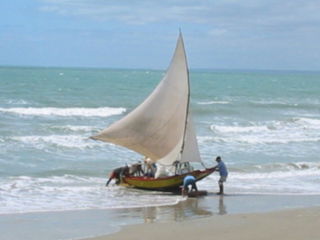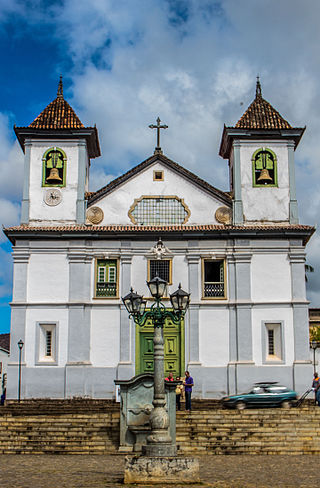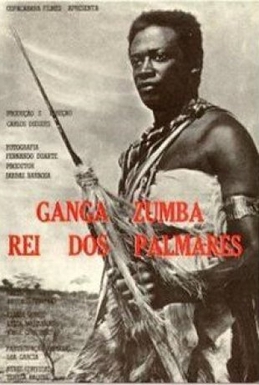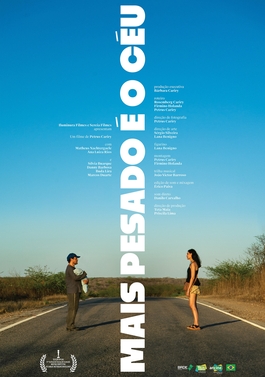
A jangada is a traditional fishing boat made of wood used in the northern region of Brazil.

The 15th Pan-American Games were held in Rio de Janeiro, Brazil, between 13 July 2007 and 29 July 2007. The Brazilian delegation consisted of 659 athletes and 267 directors, making a total of 926 people in 41 sports. Competing in their own country, the Brazilian athletes managed to far surpass their own record number of Gold, Silver and Bronze medals obtained in a single edition of the Pan-American Games.

The Roman Catholic Archdiocese of Mariana is an archdiocese based in the city of Mariana in the Brazilian state of Minas Gerais.
The Vows is a 1973 Portuguese drama film directed by António de Macedo. It was entered into the 1973 Cannes Film Festival.
Maria Firmina dos Reis was a Brazilian author. She is considered Brazil's first black female novelist. In 1859, she published her first book Úrsula, which is considered the first Brazilian abolitionist novel. The book tells the story of a love triangle, in which the system of slavery is put into question.

Events in the year 1930 in Brazil.

Events in the year 1933 in Brazil.

Events in the year 1939 in Brazil.

Events in the year 1949 in Brazil.

Events in the year 1953 in Brazil.

Events in the year 1995 in Brazil.

Events in the year 1971 in Brazil.

Events in the year 1983 in Brazil.

Events in the year 1982 in Brazil.

Events in the year 1974 in Brazil.

Ganga Zumba is a Brazilian film made in 1963 by Carlos Diegues and released in 1972 about slavery in Brazil. It portrays the life of the leader of the Quilombo dos Palmares, Ganga Zumba. When he took power the Quilombo already had existed for approximately one hundred years. Its soundtrack was composed by Moacir Santos and played by Nara Leão, with African rituals and dance performed by the Sons of Gandhy group. It was filmed in accurate locations as proposed by the Cinema Novo. Also present in the movie were the musicians Cartola and Dona Zica.
The Trófeu Raça Negra is a Brazilian award which is handed out to individuals and groups who have contributed or exhibited advancements for Afro-Brazilians. Organized by the NGO Afrobras, it was first handed out in 2000 on the 500th anniversary of the European arrival in Brazil, and has been held annually since 2004. It is similar to the NAACP Image Award in the United States.

Heavier Is the Sky is a 2023 Brazilian drama film directed by Petrus Cariry who co-wrote with Firmino Holanda and Rosemberg Cariry. Starring Matheus Nachtergaele and Ana Luiza Rios. It had its world premiere at the 51st Gramado Film Festival on August 14, 2023, where it competed for the Golden Kikito and was honored with the awards: Best Director, Best Cinematography, Best Editing and the Special Jury Prize for Ana Luiza Rios.







